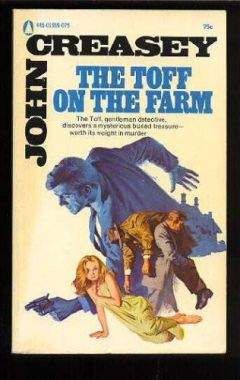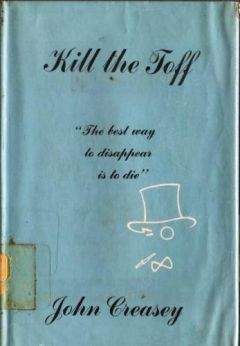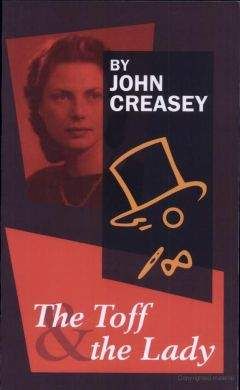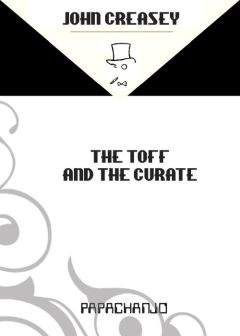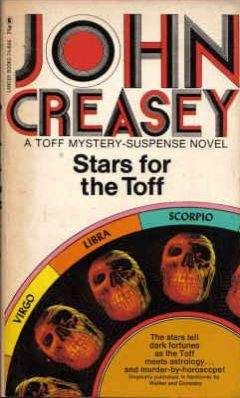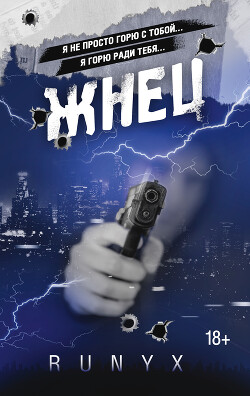John Creasey - The Toff In Town
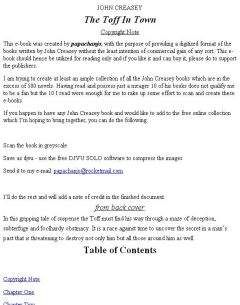
Помощь проекту
The Toff In Town читать книгу онлайн
Nothing happened when he stopped. Rollison looked about him in surprise, Jolly peered at the announcer, everyone waited and seemed to think some catastrophe had befallen the programme—and then Rollison saw that the announcer was looking through the glass partition and realised that the programme’s signature tune, the Knightsbridge March, was being played on a gramophone in the control room. The tall young man turned away and began to speak again.
“Once again we stop the mighty roar of London’s traffic and from the great crowds we bring you some of the interesting people who are In Town To-night!”
He stepped away from the microphone, and there was another silence while the London Again Suite, Oxford Street, was played over the air but did not sound in the studio. In the hush, it was impossible for Rollison and Jolly to whisper to each other. Then the wandering artist moved his script, coughed nervously, and Wentworth began to speak.
The programme was really on; in half an hour Allen would finish, that red light would fade, the green replace it. Green for safety . . .
Jolly put his mouth close to Rollison’s ear.
“You were going to tell me how you expect to influence what Allen has to say,” said Jolly. When Rollison simply looked at the back of Allen’s head, Jolly went on: “Are you sure it will be the right thing to do, sir? Is there any way of making sure that it will help the situation?”
Rollison said: “Jolly, supposing we do what we’re told—what will happen? Can these people afford to release Snub? He may have been on the spot when Merino-was killed—we still don’t know who murdered Merino, you know. It’s even possible that Pauline will manage to fake evidence which can’t be denied that Snub killed him. She’s clever and cunning, and I wouldn’t like to say that we can outwit her simply by giving way now and hoping to fight another day. Don’t forget that she’s put everything in getting that message put across to-night, and if she succeeds in that, then she’s won. If we’re to have a chance, the message mustn’t go out, and we have to find who ever is working for her here.”
Hedley glanced at him, obviously disapproving. The Danes had finished, the busker was about to perform. In the control room several people were standing against the wall. No one appeared to be taking any notice of Allen, but the minutes were flying by, and his turn would soon come. Next were the Lundys, then Toni—seven or eight minutes at the most remained.
“Well?” asked Rollison.
“You’re quite right, sir,” said Jolly, “but if Allen is determined to do what the woman has told him, how can you prevent him?”
Rollison said: “He’s sitting there with his script rolled up, he won’t open it again until he goes to the mike. Hemmingway’s advised him not to read it too often. He’ll be called to the table so that he’s waiting there while Toni’s giving voice. He might look through the script then and see it, but there’s a good chance that he’ll look on the first page and not turn over a leaf. Until he turns over, he won’t see what I’ve done.”
“What have you done?” asked Jolly in an agonised whisper.
Rollison said: “I’ve slipped back the original page of script —given him another copy. When he starts to read the second page, he’ll be reading that original, and he’ll be well on the way before he realises that it’s not the revised version. He’ll either stop altogether, or pause and then go on reading what’s in front of him. It’s going to be a tense minute, Jolly.”
“Tense !” echoed Jolly.
Hedley positively glowered at them.
Rollison stood up, waited until Toni had started to sing, then tip-toed towards Allen. He ignored the frown of many who glanced at him. And Toni’s singing reached a pitch of perfection which it was almost sacrilegious to interrupt. Rollison sat down on a chair by the wall, so that he could see everyone, including Allen.
Then he saw the door open.
He caught his breath. It didn’t open wide at first, no one else noticed it, the Italian’s voice drugged all of them—but Rollison watched the door, fascinated. Who would dare to come in now?
The door opened a little wider.
Rollison saw a hand gripping it—a small, gloved hand. Then a neatly shod foot and a well-turned ankle appeared; whoever it was, was dressed in black, with sheer silk stockings; he imagined Pauline’s golden curls.
The newcomer stepped in.
It was Barbara Allen I
She looked swiftly round the studio . . .
Hedley had seen her, and raised his hand in urgent warning. Allen, sitting at the microphone, looked up and stiffened. Rollison saw his scowl— he looked then as if he hated his wife. No one else appeared to notice that anything was unusual, and the Italian’s song came towards its end, a gentle, pleading end.
He finished . . .
“And also in the studio,” began Wentworth, smiling at Allen, “is a man who has one of the most remarkable stories ever told, to tell us. He is Mr. Robert Allen, until lately Wing Commander Allen of the R.A.F., who was lost in Burma for several years—exactly how long, Mr. Allen?”
Allen opened his mouth but didn’t speak. It was only a momentary silence, no longer than that which had followed the introductions of the other broadcasters, but to Rollison it seemed an age. Now, too, he had to try to watch Allen and the others in the studio—and Barbara. She took in the situ-ation at a glance, raised her hand to catch Rollison’s eye and began to creep round the walls of the room. Hedley went swiftly towards her, to try to stop her, but she ignored him.
Hedley had no answer to such defiance, but looked thunderstruck. Barbara passed in front of Jolly, who leaned forward as if to touch her, then drew back. Rollison saw her moving out of the corner of his eye, but couldn’t give her much attention, he had to watch the others. Some—the Danes, the young people who had come to watch, and the busker—were looking at Allen. The busker yawned widely; now that his part was over, he wasn’t interested in anything, or anyone else. But McMahon, the wandering artist, Toni and his little troupe, the Lundys and their friends, were all glancing down at their scripts. Any one of them might be following the script line by line word by word to check Allen.
Rollison was trying to do that.
Barbara drew nearer.
He put out a hand, glanced at her and touched his lips, hoping that she wouldn’t ignore him. He heard Allen answer another of Wentworth’s questions, and saw him fumbling with the corner of his script, to turn over.
Barbara crouched down on one knee, beside Rollison.
“He must do what she told him,” she whispered in desperate entreaty. “She’ll kill——”
Rollison gripped her wrist and held it tightly. Allen turned over the page. Two paragraphs were unaltered. The seconds which had passed so quickly before now seemed to drag; Allen appeared to weigh every word, as if he had difficulty in uttering it. His forehead was beaded with sweat, he kept rubbing his left hand against the seam of his trousers. Barbara was quiet now; she didn’t move but knelt there without trying to free herself. Jolly standing up, looked towards the audience from behind. McMahon, also standing at the side of the studio opposite Rollison, watched everyone lynx-eyed.
Rollison wasn’t looking at Allen now.
“I’d lost count of time,” said Allen. “I just gave up hoping.” He didn’t falter, he hadn’t realised that this was the original script. “Then one day one of the natives——”
He paused and looked up, sending a terrified glance towards the audience. Rollison saw that only one man, the actor Lundy, was looking at Allen before that pause, but a moment afterwards, everyone was staring at him. Hedley opened his mouth and gaped, Wentworth forced a smile, as if to say: “It’s all right, you’re doing fine,” but the pause lengthened.
Lundy half-rose in his chair, and his hand was pushed against his coat pocket.
Then suddenly Allen began to speak, more quickly than before, but with every confidence, and Hedley relaxed, Wentworth wiped his forehead.
. . . came and talked to me. I’d picked up a bit of the lingo by then. Apparently a hostile neighbouring tribe was coming to pay a visit. My little crowd was in a panic. They said the other tribe was armed . . .
Allen went on firmly, with the new script, Pauline’s script! He wasn’t reading; he was repeating something he had learned off by heart!
Lundy sat down again, few seemed to have noticed that he had moved. Wentworth said his little piece leading on to Allen’s final paragraph, the message which Pauline had been so anxious that he should put over; and which was put over.
“I certainly needed it. I shall never forget seeing white people again, after so long. I shall never forget their faces either. I hope I shall meet them all again one day, the sooner the better. We’ve a lot of memories to share.”
He finished, and wiped his forehead. Rollison hardly heard Wentworth’s final comment. Barbara was leaning against Rollison’s knee, as if the strain were too great to bear. There was a tense hush—and then the green light came on, Hedley clapped his hands together, and said gaily:
“A minute to spare—couldn’t be much better than that, could it? By jingo, it’s been a good night!” He waved to Rollison. The producer came out of the control room and made a bee-line for Rollison. McMahon looked across at Rollison and shook his head reproachfully—obviously he thought that Rolli-son had deliberately fooled him. The Italians were shaking hands with everyone, the Lundys and their friends were laughing and talking. Allen sat where he was, as if he could not find the strength to get up. One of the girls took him a glass of water.
The producer reached Rollison, glanced down at Barbara and frowned, then gave a pleasant laugh, and said:
“I hope I wasn’t too short with you just now; it’s a trying time, you know—always the same just before we go on the air.”
“You were patience itself, said Rollison, “I ought to be shot. Found it a bit of a strain myself,” he added, and then glanced down at Barbara. The producer took the hint and went to speak to someone else. Jolly hovered near. Rollison helped
Barbara to her feet. Her face was pasty-white and her eyes were filled with a horror which, a few minutes before, he wouldn’t have been able to understand. But he did now, he knew the whole truth. Jolly could not restrain himself, and leaned forward so that only Rollison and Barbara heard what he said:
“So he knew it off by heart, sir. We’ve failed.”
Barbara said weakly: “I must sit down.”
“No, we haven’t failed,” said Rollison. “I can see the whole story now, Jolly.”
“What’s all this?” demanded McMahon, pushing forward and standing squarely in front of the little group. “What can you see, Roily? If you haven’t a pretty good line in apologies, I’ll never do you a good turn again.” When Rollison just looked at him, as if commanding silence, McMahon paused and frowned. Allen moved towards the door—he was walking with his head bowed. Hedley was by his side, commiserating, unable to understand why it should have affected him like this.
“You know——” began Jolly.
“Oh yes,” said Rollison. “Don’t let Allen leave, Jolly.”
“He must leave! You mustn’t stop him!” cried Barbara, in a voice so loud that it sounded high above every other sound and made everyone swing round and stare. Even Allen turned from the door and looked at her. When she stopped the silence was profound.
Lundy broke away from his friends, and went to the door as if to leave hurriedly. He pushed Allen by the shoulder and opened the door with his free hand.
Rollison moved forward.
“Let him go !” cried Barbara, and flung her arms round Rollison and held him tightly, “Let him go,” she sobbed. “Let him go!”
CHAPTER TWENTY-ONE
WHAT HAPPENED IN BURMA
ALLEN went out, Lundy followed him, the door closed behind them. Barbara still clung to Rollison, but Jolly had hurried across the room only to be impeded by the Italian troupe. Hedley looked puzzled, but stood back discreetly. Rollison put Barbara gently aside and went in Jolly’s wake, but she wouldn’t let him go alone, she clung to his arm and followed him. No one spoke to them, although someone called out: “Shame!” By then Jolly had opened the door and Rollison hurried out, dragging the girl with him. She kept saying the same thing over and over again:
“Let him go, let him go, let him go.”
Rollison said: “Barbara, you’ve got to see this thing through. It’ll be for the best in the long run.” He stepped along the hall, past a startled commissionaire. It was dull outside and a drizzle was falling. Jolly reached the kerb and Perky Lowe pulled up in front of him.
“As ordered?” he demanded.
“Yes,” said Rollison.
“Follow that cab, Lowe,” said Jolly, pointing to a cab which had just moved off, and then realised that the instructions were superfluous.
“Get in,” said Rollison. He helped Barbara into the taxi. Jolly followed and was about to close the door, when McMahon came running and swung into the cab as it moved off. A little further along New Bond Street the other cab was gathering speed. There was no sign of Lundy or Allen.
“Two of ‘em got in,” said Perky cheerfully, shouting through the partition.
“All right, Perky—you just get a move on,” said Rollison. He sat back and took out cigarettes. “It’s all right Jolly,” he said “that cab in front belongs to a friend of Perky’s, I arranged for him to be at hand to pick up Allen.”
“I see, sir,” said Jolly; but obviously he didn’t see at all.
“Now supposing you give me the story,” said McMahon.
“Shut up, Mac,” said Rollison. “Think yourself lucky that I don’t throw you out on your ear. Barbara, don’t cry.” His words made Jolly and the reporter realise that she was leaning back with tears streaming down her face, making no attempt to stop herself. “It isn’t your fault,” he went on gently, “you’re not to blame.”
